
THERE’S A STORY in every hollow of the grey-white trunks of wandoo woodland at Coomallo Creek, 220km north of Perth in Western Australia. The handsome eucalypts stand like leafy islands in a sea of floral heath. From the 1950s, farmers cut a swathe through the native bush to tame and clear it for agriculture. By 1969 land was released for farming around Coomallo Creek and clearing had begun. That was the year “Cocky Whisperer” Dr Denis Saunders AM first visited Coomallo Creek. Exploring ridge tops and breakaways where the wandoo grows, Denis was transfixed by the open woodland’s beauty and age. He realised the knotted trunks were so old they’d been standing long before Captain Cook arrived in Tahiti to monitor the Sun’s eclipse in 1769.
Tree age was important in Denis’s quest to study Carnaby’s black-cockatoos (Calyptorhynchus latirostris), the handsome white-tailed black parrots that habitually nest and fledge their young at Coomallo Creek. “They’re wonderful to look at and very placid, and they’re graceful in flight,” Denis says. “We’ve got a history of all the birds that have bred here and that come back to nest in hollows within 60m of where they fledged.” The birds’ preferred hollows have taken 120 years or more to form – knock down any tree, and you have to wait a century before nature etches out a metre-deep hollow in its trunk or branch.
Four generations of the Raffan farming family have owned Coomallo Creek, and three have lived there. On their 2000ha property, they’ve left intact a north–south tree corridor that extends about 1km wide by 9km long across three other properties. “It [the tree corridor] was due to a lot of foresight by my father and grandfather,” James Raffan says, the family’s third-generation farmer. “They didn’t clear all the land and they left many trees as shade for stock. We’re fortunate, and the birds keep coming back, generation after generation.”
Esta historia es de la edición September-October 2024 de Australian Geographic Magazine.
Comience su prueba gratuita de Magzter GOLD de 7 días para acceder a miles de historias premium seleccionadas y a más de 9,000 revistas y periódicos.
Ya eres suscriptor ? Conectar
Esta historia es de la edición September-October 2024 de Australian Geographic Magazine.
Comience su prueba gratuita de Magzter GOLD de 7 días para acceder a miles de historias premium seleccionadas y a más de 9,000 revistas y periódicos.
Ya eres suscriptor? Conectar

SULAWESI SENSATIONS
There are worlds within worlds and marvels untold waiting to be experienced on Indonesia's remote islands.
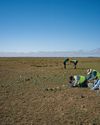
SEARCHING FOR AUSSIE DINOSAURS
Our understanding of where to find ancient life in Australia has been turned on its head by a new appreciation of the country's geology. Now the world is looking to our vast outback as the latest hotspot to locate fossils.
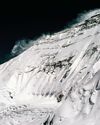
THE HARDEST NIGHT
The first Australian ascent of Mt Everest in 1984 is one of the great feats of mountaineering. Climbed by a small team semi-alpine style, with no bottled oxygen, via the Great (Norton) Couloir, it remains unrepeated 40 years later.
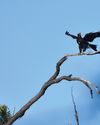
WEDGE-TAILED WONDER
The chance discovery of an eagle nest leads to an extended vigil observing normally hidden behaviours of one of nature's supreme winged marvels.
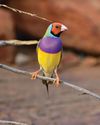
BURDENED BY BEAUTY
Northern Australia's Gouldian finch survives in huge numbers in cages around the world, but its wild population continues to struggle.
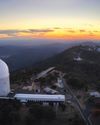
A TELESCOPE FOR A GOLDEN AGE
After a stellar 50 years as one of the country's major scientific assets, the AAT continues to play a major role in keeping Australian astronomy on the world stage.
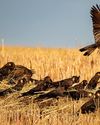
COCKY WHISPERING AT COOMALLO CREEK
This patch of remnant bush on the edge of the West Australian wheatbelt is a place loved by one of Australia's rarest bird species and the man who has studied the site for more than 50 years.

A PIONEERING PAIR
Louisa Atkinson and her mother, Charlotte, were among Australia's earliest authors, and pioneers in women's rights.

THE LONGEST WALK
Lucy Barnard is walking from Argentina to Alaska -the length of the Americas - on an extraordinary journey of endurance and adventure.
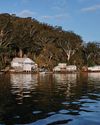
SECLUDED, BUT NOT ALONE
In an era of heightened social isolation, where many of us lead lonely lives, Dangar Island offers the chance to be part of a supportive, connected community.